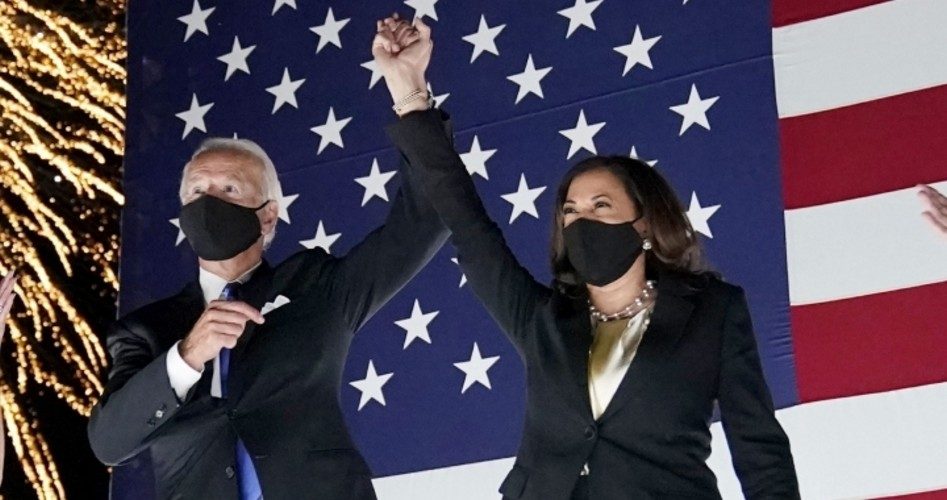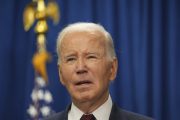
The biggest takeaway from the Democrat National Convention is how few Americans actually watched it. ABC News partnered with research firm Ipsos in quizzing 714 adults and learned that only 30 percent of them watched “at least some of the convention, either on TV or online.” In 2016, 62 percent of the country watched at least some of the Democrat convention.
From that sample, the pollster learned that Biden’s favorability index “ticked up from 40% just over a week ago to 45%.” Just 39 percent of whites and 52 percent of Hispanics viewed him favorably. And among the Democrat Party’s most reliable voting bloc, Black voters, just 69 percent of them viewed Biden favorably after the convention ended. That’s down from the estimated 90 percent of them who voted for Clinton in 2016.
Kamala Harris also failed to make much of an impression, with her favorability rating moving from a dismal 35 percent to 41 percent.
Los Angeles Times Editor Paul Thornton, charged with monitoring readers’ commentaries, was also underwhelmed: “The reviews [following the convention] from our readers are mixed. With an assortment of prerecorded spots interspersed with real-time addresses giving the four-night ‘live’ event a surreal quality, few readers expressed great enthusiasm over what they saw.… This convention failed to elicit the outpouring of opinions typical when ex-presidents, ex-nominees and celebrities give rousing speeches in packed arenas.”
Harry Enten, CNN’s political journalist and chief poll watcher, was muted: “The big question coming out of the Democratic National Convention is whether [younger voters] will actually start to like him [Biden]. Going in, young voters still didn’t like Biden, which leaves him susceptible to some of these voters potentially not turning out to vote in the fall.”
Following the convention, Enten reviewed polls from ABC News/Washington Post, CNN, Fox News, and Marist and concluded that “Biden’s net favorability (favorable minus unfavorable) rating averages out to be minus four percentage points among the 18-29 subset. That’s actually about five points worse than his net favorability rating with all registered voters. If we expand out to 18-34-year-olds looking at data from CNN, Gallup and Monmouth, Biden’s net favorability remains negative.”
According to Marc Thiessen, a resident fellow at the American Enterprise Institute (AEI), “Biden has an enthusiasm problem with two key constituencies he needs to win [in November]: younger voters and African Americans. Only 25 percent of voters aged 18-39 are ‘very enthusiastic’ about voting for him [while] Biden’s support among black voters is smaller than Clinton’s was in 2016. Worse, only 68 percent of African Americans aged 18-39 say they intend to vote for Biden — 17 points fewer than supported Clinton four years ago.”
The message from the convention never addressed the “swing” voters who voted for Trump in 2016, according to Nate Cohn of the New York Times: “If you were a working-class Obama-Trump voter watching this week’s convention, you heard a lot about gun violence, racial justice and climate change, but not much directed at you. The message you heard was: Democrats are not interested in your support.”
By all metrics, the Democrat National Convention failed: in viewership; in enthusiasm; in reaching out to “swing” voters, young voters, and black voters; and in generating a significant “bounce” in favorability for Biden and his running mate.
It’s now Trump’s turn to present a positive view of the world, touting the economy before the pandemic and his ability to return it to its former glory. He’s getting a lot of help from the Democrats with their dismal performance last week.
Photo: AP Images
An Ivy League graduate and former investment advisor, Bob is a regular contributor to The New American, writing primarily on economics and politics. He can be reached at [email protected].


